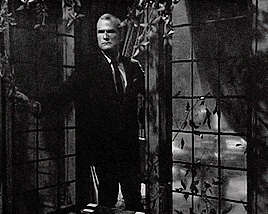#Joshua Evans
Text
this colleen situation is now getting out of hand. like, johnny silvestri, what the actual f**k?
#colleen ballinger#joshua evans#johnny silvestri#toxic gossip train#ti's rants#ti's open ended discussion#ti's ☕
30 notes
·
View notes
Text
i want people to listen very carefully when i say that colleen’s “cheeky” little ukulele song was NOT an “apology video” she says so in the song itself: “i know you wanted me to say i was 100% in the wrong, well i’m sorry i’m not gonna take that route”
she is excusing, manipulating, and minimizing her actions by being vague about anything she does mention and conveniently leaving out the damning evidence, for instance the federal crime of sending minors nude photographs. No facts or receipts throughout all 10 minutes in her defense.
this was not an apology video, this was a mockery to a very serious situation.
#i cannot emphasize enough how serious this situation#colleen ballinger#miranda sings#adam mcintyre#kory desoto#joshua evans#trisha paytas
17 notes
·
View notes
Text
Meet Artist Joshua Evans - the Man behind Mijoshiski brand

View On WordPress
#artist Joshua Evans#black artists#BLUE#brigitteseguracurator#fashiondailymag#Indira Cesarine#Joshua Evans#Mijoshiski skateboards#painted skateboards#skateboards#young artist
0 notes
Text

youtube
0 notes
Text




185 notes
·
View notes
Text










#new girl#nick miller#finn wolfhard#stranger things#mike wheeler x fem!reader#mike wheeler x reader#byler better be canon#joe goldberg#joe goldberg x reader#love quinn#joshua bassett#joshua bassett x reader#emma roberts#brooke thompson#madison montgomery#olivia rodrigo#cheryl blossom#sharpay evans#the umbrella academy#number five#five hargreaves x reader#five hargreeves
2K notes
·
View notes
Text
Champagne Bracket: Semifinals, Poll 1


Propaganda from submitters Under Cut
Yoshiya "Joshua" Kiryu
He’s a bitch and a hate (love) him. I will now quote him below: "Sigh... I don't do the whole sweating thing, Neku." "Very impressive, Neku. Show those fifth graders who's boss." "Who needs other people's values? It's easier to just live by your own rules." "Oh! I can't say I'm particularly interested, but... I'll go ahead and ask, for the sake of convenience. Do you have a name?"
Smug asshole. Always playing mind games with the player character. Has many secrets but never shares them. Also did a bunch of spoilery shit.
THE REAL ASSHOLE OF TWEWY!!!!!! (VOTE FOR JOSHUA)
Sharpay Evans
Blonde, HSM antagonist but it was never that deep
vote for Sharpay right now she fought sasuke
#champagne bracket#champagne bracket semifinals#polls#tournament polls#yoshiya kiryu#joshua kiryu#twewy#the world ends with you#sharpay evans#high school musical#blond jerk tournament
88 notes
·
View notes
Text


I feel unreasonably smart for thinking of this. Watching Chucky made me realize how iconic it would've been to have Gina with a dating EJ and Ricky backing her up at every turn. (In other words, leading lady with her queer backup icons is a dynamic I need more of, please and thank you Hollywood).
#chucky#jake wheeler#devon evans#lexy cross#zackary arthur#bjorgvin arnarson#alyvia alyn lind#jevon#hsmtmts#ricky bowen#ej caswell#gina porter#joshua bassett#matt cornett#sofia wylie#caswen
95 notes
·
View notes
Text
Wrestling with the Bible's war stories
Spend any solid amount of time with scripture and you'll run into something that perplexes, disturbs, or downright horrifies you. Many of us have walked away from the Bible or from Christianity in general, sometimes temporarily and sometimes permanently, after encountering these stories. So how do we face them, wrestle them, and seek God's presence in (or in spite of) them?
In her book Inspired: Slaying Giants, Walking on Water, and Loving the Bible Again, the late Rachel Held Evans spends a whole chapter on the "war stories" of Joshua, Judges, and the books of Samuel and Kings. She starts with how most teachers in her conservative Christian upbringing shut her down every time she tried to name the horror she felt reading of violence, rape, and ethnic cleansing; I share an excerpt from that part of the chapter over in this post.
That excerpt ends with Evans deciding that she needed to grapple with these stories, or lose her faith entirely.
...But then I ended the excerpt, with the hope that folks would go read all of Inspired for themselves — and I still very much recommend doing so! The whole book is incredibly helpful for relearning how to read scripture in a way that honors its historical context and divine inspiration, and takes seriously how misreadings bring harm to individuals and whole people groups.
But I know not everyone will read the book, for a variety of reasons, and that's okay. So I want to include a long excerpt from the rest of the chapter, where Evans provides cultural context and history that helps us understand why those war stories are in there; and then seeks to find where God's inspiration is among those "human fingerprints."
I know how important it was to Rachel Held Evans that all of us experience healing and liberation, so it is my hope that she'd be okay with me pasting such a huge chunk of the book for reading here. If you find what's in this post meaningful, please do check out the rest of her book! A lot of libraries have it in print, ebook, and/or audiobook form.
[One last comment: the following excerpt focuses on these war stories from the Hebrew scriptures ("Old Testament"), but there are violent and otherwise disturbing stories in the "New Testament" too, from Herod killing babies to all the wild things going on in Revelation. Don't fall for the antisemitic claim that "The Old Testament is violent while the New Testament is all about peace!" All parts of scripture include violent passages, and maintain an overarching theme of justice and love.]
Here's the excerpt showing Rachel's long wrestling with the Bible's war stories, starting with an explanation for why they're in there in the first place:
“By the time many of the Bible’s war stories were written down, several generations had passed, and Israel had evolved from a scrappy band of nomads living in the shadows of Babylon, Egypt, and Assyria to a nation that could hold its own, complete with a monarchy. Scripture embraces that underdog status in order to credit God with Israel’s success and to remind a new generation that “some trust in chariots and some in horses, but we trust in the name of the LORD our God” (Psalm 20:7). The story of David and Goliath, in which a shepherd boy takes down one of those legendary Canaanite giants with just a slingshot and two stones, epitomizes Israel’s self-understanding as a humble people improbably beloved, victorious only by the grace and favor of a God who rescued them from Egypt, walked with them through the desert, brought the walls of Jericho down, and made that shepherd boy a king.
To reinforce the miraculous nature of Israel’s victories, the writers of Joshua and Judges describe forces of hundreds defeating armies of thousands with epic totality. These numbers are likely exaggerated and, in keeping literary conventions of the day, rely more on drama and bravado than the straightforward recitation of fact. Those of us troubled by language about the “extermination” of Canaanite populations may find some comfort in the fact that scholars and archaeologists doubt the early skirmishes of Israel’s history actually resulted in genocide.
It was common for warring tribes in ancient Mesopotamia to refer to decisive victories as “complete annihilation” or “total destruction,” even when their enemies lived to fight another day. (The Moabites, for example, claimed in an extrabiblical text that after their victory in a battle against an Israelite army, the nation of Israel “utterly perished for always,” which obviously isn’t the case. And even in Scripture itself, stories of conflicts with Canaanite tribes persist through the book of Judges and into Israel’s monarchy, which would suggest Joshua’s armies did not in fact wipe them from the face of the earth, at least not in a literal sense.)
Theologian Paul Copan called it “the language of conventional warfare rhetoric,” which “the knowing ancient Near Eastern reader recognized as hyperbole.”
Pastor and author of The Skeletons in God’s Closet, Joshua Ryan Butler, dubbed it “ancient trash talk.”
Even Jericho, which twenty-first-century readers like to imagine as a colorful, bustling city with walls that reached the sky, was in actuality a small, six-acre military outpost, unlikely to support many civilians but, as was common, included a prostitute and her family. Most of the “cities” described in the book of Joshua were likely the same. So, like every culture before and after, Israel told its war stories with flourish, using the language and literary conventions that best advanced the agendas of storytellers.
As Peter Enns explained, for the biblical writers, “Writing about the past was never simply about understanding the past for its own sake, but about shaping, molding and creating the past to speak to the present.”
“The Bible looks the way it does,” he concluded, “because God lets his children tell the story.”
You see the children’s fingerprints all over the pages of Scripture, from its origin stories to its deliverance narratives to its tales of land, war, and monarchy.
For example, as the Bible moves from conquest to settlement, we encounter two markedly different accounts of the lives of Kings Saul, David, and Solomon and the friends and enemies who shaped their reigns. The first appears in 1 and 2 Samuel and 1 and 2 Kings. These books include all the unflattering details of kingdom politics, including the account of how King David had a man killed so he could take the man’s wife, Bathsheba, for himself.
On the other hand, 1 and 2 Chronicles omit the story of David and Bathsheba altogether, along with much of the unseemly violence and drama around the transition of power between David and Solomon.
This is because Samuel and Kings were likely written during the Babylonian exile, when the people of Israel were struggling to understand what they had done wrong for God to allow their enemies to overtake them, and 1 and 2 Chronicles were composed much later, after the Jews had returned to the land, eager to pick up the pieces.
While the authors of Samuel and Kings viewed the monarchy as a morality tale to help them understand their present circumstances, the authors of the Chronicles recalled the monarchy with nostalgia, a reminder of their connection to God’s anointed as they sought healing and unity. As a result, you get two noticeably different takes on the very same historic events.
In other words, the authors of Scripture, like the authors of any other work (including this one!), wrote with agendas. They wrote for a specific audience from a specific religious, social, and political context, and thus made creative decisions based on that audience and context.
Of course, this raises some important questions, like: Can war stories be inspired? Can political propaganda be God-breathed? To what degree did the Spirit guide the preservation of these narratives, and is there something sacred to be uncovered beneath all these human fingerprints?
I don’t know the answers to all these questions, but I do know a few things.
The first is that not every character in these violent stories stuck with the script. After Jephthah sacrificed his daughter as a burnt offering in exchange for God’s aid in battle, the young women of Israel engaged in a public act of grief marking the injustice. The text reports, “From this comes the Israelite tradition that each year the young women of Israel go out for four days to commemorate the daughter of Jephthah” (Judges 11:39–40).
While the men moved on to fight another battle, the women stopped to acknowledge that something terrible had happened here, and with what little social and political power they had, they protested—every year for four days. They refused to let the nation forget what it had done in God’s name.
In another story, a woman named Rizpah, one of King Saul’s concubines, suffered the full force of the monarchy’s cruelty when King David agreed to hand over two of her sons to be hanged by the Gibeonites in an effort to settle a long, bloody dispute between the factions believed to be the cause of widespread famine across the land. A sort of biblical Antigone, Rizpah guarded her sons’ bodies from birds and wild beasts for weeks, until at last the rain came and they could be buried. Word of her tragic stand spread across the kingdom and inspired David to pause to grieve the violence his house had wrought (2 Samuel 21).” ...
The point is, if you pay attention to the women, a more complex history of Israel’s conquests emerges. Their stories invite the reader to consider the human cost of violence and patriarchy, and in that sense prove instructive to all who wish to work for a better world. ...
It’s not always clear what we are meant to learn from the Bible’s most troubling stories, but if we simply look away, we learn nothing.
In one of the most moving spiritual exercises of my adult faith, an artist friend and I created a liturgy of lament honoring the victims of the texts of terror. On a chilly December evening, we sat around the coffee table in my living room and lit candles in memory of Hagar, Jephthah’s daughter, the concubine from Judges 19, and Tamar, the daughter of King David who was raped by her half brother. We read their stories, along with poetry and reflections composed by modern-day women who have survived gender-based violence. ...
If the Bible’s texts of terror compel us to face with fresh horror and resolve the ongoing oppression and exploitation of women, then perhaps these stories do not trouble us in vain. Perhaps we can use them for some good.
The second thing I know is that we are not as different from the ancient Israelites as we would like to believe.
“It was a violent and tribal culture,” people like to say of ancient Israel to explain away its actions in Canaan. But, as Joshua Ryan Butler astutely observed, when it comes to civilian casualties, “we tend to hold the ancients to a much higher standard than we hold ourselves.” In the time it took me to write this chapter, nearly one thousand civilians were killed in airstrikes in Iraq and Syria, many of them women and children. The atomic bombs dropped on Hiroshima and Nagasaki took hundreds of thousands of lives in World War II, and far more civilians died in the Korean War and Vietnam War than American soldiers. Even though America is one of the wealthiest countries in the world, it takes in less than half of 1 percent of the world’s refugees, and drone warfare has left many thousands of families across the Middle East terrorized.
This is not to excuse Israel’s violence, because modern-day violence is also bad, nor is it to trivialize debates over just war theory and US involvement in various historical conflicts, which are complex issues far beyond the scope of this book. Rather, it ought to challenge us to engage the Bible’s war stories with a bit more humility and introspection, willing to channel some of our horror over atrocities past into questioning elements of the war machines that still roll on today.
Finally, the last thing I know is this: If the God of the Bible is true, and if God became flesh and blood in the person of Jesus Christ, and if Jesus Christ is—as theologian Greg Boyd put it—“the revelation that culminates and supersedes all others,” then God would rather die by violence than commit it.
The cross makes this plain. On the cross, Christ not only bore the brunt of human cruelty and bloodlust and fear, he remained faithful to the nonviolence he taught and modeled throughout his ministry. Boyd called it “the Crucifixion of the Warrior God,” and in a two-volume work by that name asserted that “on the cross, the diabolic violent warrior god we have all-too-frequently pledged allegiance to has been forever repudiated.” On the cross, Jesus chose to align himself with victims of suffering rather than the inflictors of it.
At the heart of the doctrine of the incarnation is the stunning claim that Jesus is what God is like. “No one has ever seen God,” declared John in his gospel, “but the one and only Son, who is himself God and is in closest relationship with the Father, has made him known” (John 1:18, emphasis added). ...So to whatever extent God owes us an explanation for the Bible’s war stories, Jesus is that explanation. And Christ the King won his kingdom without war.
Jesus turned the war story on its head. Instead of being born to nobility, he was born in a manger, to an oppressed people in occupied territory. Instead of charging into Jerusalem on a warhorse, he arrived on a lumbering donkey. Instead of rallying troops for battle, he washed his disciples’ feet. According to the apostle Paul, these are the tales followers of Jesus should be telling—with our words, with our art, and with our lives.
Of course, this still leaves us to grapple with the competing biblical portraits of God as the instigator of violence and God as the repudiator of violence.
Boyd argued that God serves as a sort of “heavenly missionary” who temporarily accommodates the brutal practices and beliefs of various cultures without condoning them in order to gradually influence God’s people toward justice. Insofar as any divine portrait reflects a character at odds with the cross, he said, it must be considered accommodation. It’s an interesting theory, though I confess I’m only halfway through Boyd’s 1,492 pages, so I’ve yet to fully consider it. (I know I can’t read my way out of this dilemma, but that won’t keep me from trying.)
The truth is, I’ve yet to find an explanation for the Bible’s war stories that I find completely satisfying. If we view this through Occam’s razor and choose the simplest solution to the problem, we might conclude that the ancient Israelites invented a deity to justify their conquests and keep their people in line. As such, then, the Bible isn’t a holy book with human fingerprints; it’s an entirely human construction, responsible for more vice than virtue.
There are days when that’s what I believe, days when I mumble through the hymns and creeds at church because I’m not convinced they say anything true. And then there are days when the Bible pulls me back with a numinous force I can only regard as divine, days when Hagar and Deborah and Rahab reach out from the page, grab me by the face, and say, “Pay attention. This is for you.”
I’m in no rush to patch up these questions. God save me from the day when stories of violence, rape, and ethnic cleansing inspire within me anything other than revulsion. I don’t want to become a person who is unbothered by these texts, and if Jesus is who he says he is, then I don’t think he wants me to be either.
There are parts of the Bible that inspire, parts that perplex, and parts that leave you with an open wound. I’m still wrestling, and like Jacob, I will wrestle until I am blessed. God hasn’t let go of me yet.
War is a dreadful and storied part of the human experience, and Scripture captures many shades of it—from the chest-thumping of the victors to the anguished cries of victims. There is ammunition there for those seeking religious justification for violence, and solidarity for all the mothers like Rizpah who just want an end to it.
For those of us who prefer to keep the realities of war at a safe, sanitized distance, and who enjoy the luxury of that choice, the Bible’s war stories force a confrontation with the darkness.
Maybe that’s not such a bad thing.
#joshua#biblical interpretation#texts of terror#rachel held evans#inspired#wrestling god#reading and studying the bible#bible tag#long post#quote tag
46 notes
·
View notes
Text



#stupid! sexy! ‘tasmo!
#el phantasmo#attack pro wrestling#show: memento mori#18/11/2018#*gifs#*attack#*headbanga#joshua joesph#charli evans#britwres#@cass#@pepper#@nikolai#this fuckin’ guy…
219 notes
·
View notes
Text
Spring 08: Bestseller
Morgan’s latest children’s book, “Extraordinary Paws”, is a huge success! However, the other side of that coin for any writer is that now you’ve set your own bar very high. What’s next…? Morgan is lacking both the faith and the inspiration. But sometimes, opportunity comes knocking when you least expect it…
This chapter has been posted to Tumblr in parts over the past week. If you want to (re-)read the entire update in one go, you can do so here, on my WordPress blog.








#atoh full update#ts3#the sims 3#sims 3#sims story#morgan harrison#jonah harrison-stewart#abigail turner#susie bennett#louise bennett#joel harrison#kai harrison#rosalie evans#jayden harrison#Lindy from The Rainbow Alliance#joshua edwards
23 notes
·
View notes
Text
I’ve had to block so many people for using narcissistic abuse in reference to Colleen Ballinger and Joshua Evans.
Joshua has been through so much. I loved Swoop’s interview with him and how transparent he was with everyone despite how terrified he was, and it broke my heart realising just how much the world silenced him over the years.
But what he allegedly went through with Colleen is not narcissistic abuse. It’s domestic abuse. It’s emotional abuse. It’s physical abuse, but it was not narcissistic abuse because that does not exist.
I truly hope that he is able to find some peace after finally getting to explain his side of things without getting talked over/abused/etc. and thank you Swoop for handling such a sensitive topic so well.
#npd safe#cluster b safe#cluster b#npd#narc abuse does not exist#narcissistic personality disorder#colleen ballinger#joshua david evans
67 notes
·
View notes
Text








I think that all of the unhappiness of all of my ancestors is my rightful heritage, and you shouldn't try to keep it from me.
#i was persuaded to upload the reject pile sdfkgjdfg#roger collins#dark shadows#dark shadows 1966#➤ roger collins. ┊ I and my ghosts want a drink.#➤ edits & art. ┊ the evans cottage art gallery.#gifs.#this one goes out to the joshua breeches god bless 🙏
21 notes
·
View notes
Text
Masterlist
💋 = smut ❤️ = fluff 🖤 = angst
Sam Winchester

Series
About you ❤️🖤💋 : (Ongoing) Valerie Singer and Sam Winchester first met when they were 16, it was an instant match but soon sam had to go and the letters stopped coming. Years later they unknowingly reunite at a college halloween party, here is their story.
Matty Healy

Series
Happiness 💋❤️🖤 (complete) : Julie Foreman has worked at dirty hit for 2 years now, finally she gets the chance to work and go on tour with her favorite band. When she finally meets the band her and matty instantly hit it off and sparks fly but will their love blossom or end up in flames...
Teachers Assistant ❤️🖤💋(ongoing) : You’re a senior in college just hoping to get through the year with no hiccups , but the universe has others plans when you put in Professor Healys class. When you unexpectedly volunteer yourself to be his T.A. you find your relationship with him becoming more than professional…
Imagines
Mirror picture 💋 : Matty posts a mirror picture and you can’t help but want him
Lollapalooza ❤️ : Matty surprises you onstage at your lolla set
Teacher’s Assistant 💋 : You’re Professor Healy’s T.A and one day when you go to his office you hear him moaning your name.
Teachers Assistant Pt.2 💋❤️: Your now boyfriend Matty, has had a stressful two weeks and it’s up to you to help him out.
Teacher’s Assistant Pt 3 💋❤️ : At an end of the term party that both you and matty attend, you catch someone flirting with him and retaliate, which causes matty to get jealous…
6 months later 🖤❤️ : You and matty broke up 6 months ago but you’ve been hiding a secret from him and he finds out when he spots you shopping.
Hot and Heavy 💋 : You watch matty during consumption and can’t wait to see him back stage
First time 💋❤️ : Matty takes your virginity
Night In shining armor 🖤❤️ : You’re a princess who falls in love with your fathers head knight, the one problem is that your love is strictly forbidden
Night in shining armor AU 🖤💋❤️ : Your father, the king, is a cruel man forcing you into a loveless marriage. But soon you meet his head knight and fall madly in love even though your love is strictly forbidden and can have dire consequences.
Tour baby! ❤️ : you find out you’re pregnant while on tour with the 1975.
Family Christmas ❤️💋 : You go over to Mattys childhood home for Christmas, and finally get to meet his family. And also mess around a bit in his old bedroom
Be my baby ❤️ : You go into labor with your and mattys first child.
Bad idea right? 💋🖤 : Months after your break up, you see him again, this time with a new girl on his arm. You go against your better judgment and let him talk to you and one thing leads to another
I’ve got you babe ❤️ : You were in a toxic relationship before matty, and one day you start your period and accidentally bleed onto his sheets and are scared his going to get mad just like your ex.

Vinnie Hacker
Oh Baby! ❤️ : You find out you’re pregnant while vinnie is in Paris for fashion week.
No Promises 🖤: Vinnie and you get into a fight, which escalates into your taking of your promise ring he gave you
Dreamer Cheater 🖤 : Vinnie cheats on you in your dream and you get upset with him about it

Open for requests! request form
Who i write for :
Matty healy
Ross lynch
Joshua Bassett/ Ricky Bowen
Stiles Stilinski
Joe Keery / Steve Harrington
Evan Peters
Vinnie Hacker
Castiel
Sam Winchester/ Jared Padalecki
#matty healy#ross lynch#joshua bassett#ricky bowen#evan peters#steve harrington#joe keery#stiles stilinski#vinnie hacker#smut#fluff#angst#sam winchester#jared padalecki#castiel
48 notes
·
View notes
Text
i know after so many years that Gaston is the baddie, but you can't have Joshua Henry showing up like this and belting vocals like no one's business.
#beauty and the beast 30th#beauty and the beast#beauty and the beast 30th celebration#no one sings like Gaston#Gaston#don't make me simp for the bad guy#Luke Evans now this???#Joshua Henry#beauty and the beast a 30th celebration
236 notes
·
View notes
Text
habs arrivals caked up edition 01.23.24
#montreal canadiens#im crying#mike matheson#jake evans#michael pezzetta#joshua roy#nick suzuki#rafael harvey pinard#arber xhekaj#HAPPY ARBER REUNION DAY
24 notes
·
View notes